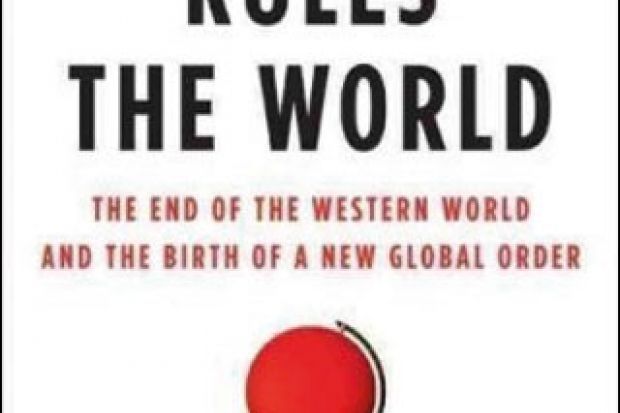Sir David Bell, vice-chancellor, University of Reading, says: “Having recently visited the country, I read Martin Jacques’ When China Rules the World: The End of the Western World and the Birth of a New Global Order [Penguin, 2009]. He defies the conventional wisdom that China is on an inexorable path to ‘Westernisation’. Rather, the Middle Kingdom, with its enduring language, culture and values, will plot an alternative route to modernisation. As Jacques puts it, the ‘gravitational pull’ of China will have a profound impact on the West, and not the other way round.”

Helen Bynum, former lecturer in medical history, University of Liverpool, is reading The Diaries of Kenneth Tynan (Bloomsbury, 2002). “The legendary theatre critic is funny, filthy and just when you cannot take him any more, very witty. Tynan bitches brightly about Peter Hall’s takeover of the National Theatre and complains about having no money to pay his income tax. This fails to stop him buying a petrol-guzzling Jaguar and eating in Michelin-starred restaurants, all during the 1970s oil crisis.”

Michael Patrick Cullinane, senior lecturer in US history at Northumbria University, is reading Edward Lengel’s Inventing George Washington: America’s Founder, In Myth and Memory (Harper, 2011). “Could Washington really not tell a lie? The myths that Americans have perpetuated about the nation’s first president rank as the biggest fabrications in US history. Lengel dissects Washington’s legacy as America’s ‘marble man’ via historical and cultural folkways to demonstrate the extent to which his image is beholden to the imagination of successive generations and their interpretation of the past.”

Lynsey Hopkins, undergraduate admissions manager, University of Sheffield, is reading Eve Harris’ The Marrying of Chani Kaufman (Sandstone Press, 2013). “This is a touching, sad and funny novel about the lives of members of the close-knit and (to the outsider) opaque community of ultra-Orthodox Jews in contemporary North London. It provides a fascinating window on a world, but while the time and place are specific, the novel’s themes are universal: innocence and experience, love and faith, and individuality and belonging.”

Ruth Richardson, honorary professor in medicine and the humanities, Hong Kong University, is avidly reading Lucinda Hawksley’s The Mystery of Princess Louise, Queen Victoria’s Rebellious Daughter (Chatto and Windus, 2013). “I’ve always wanted to know more about Princess Louise, who sculpted the lovely statue of her mother in Kensington Gardens. Despite imperious Victorian court protocol, feminist Louise successfully asserted her creativity. Biographies of Kate Perugini and Elizabeth Siddal - who moved in similar artistic circles - drew Hawksley to her. Court secrecy meant that resourcefulness was needed to write it.”
Register to continue
Why register?
- Registration is free and only takes a moment
- Once registered, you can read 3 articles a month
- Sign up for our newsletter
Subscribe
Or subscribe for unlimited access to:
- Unlimited access to news, views, insights & reviews
- Digital editions
- Digital access to THE’s university and college rankings analysis
Already registered or a current subscriber? Login

